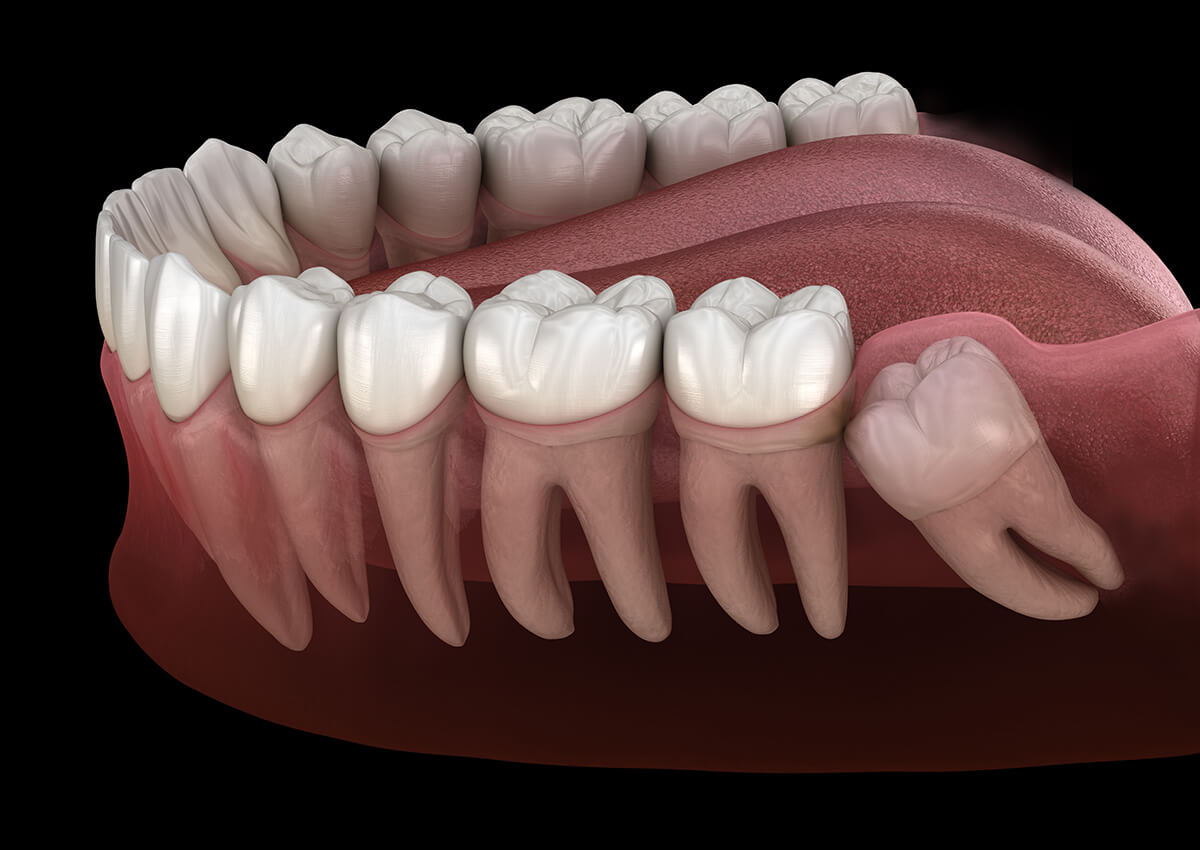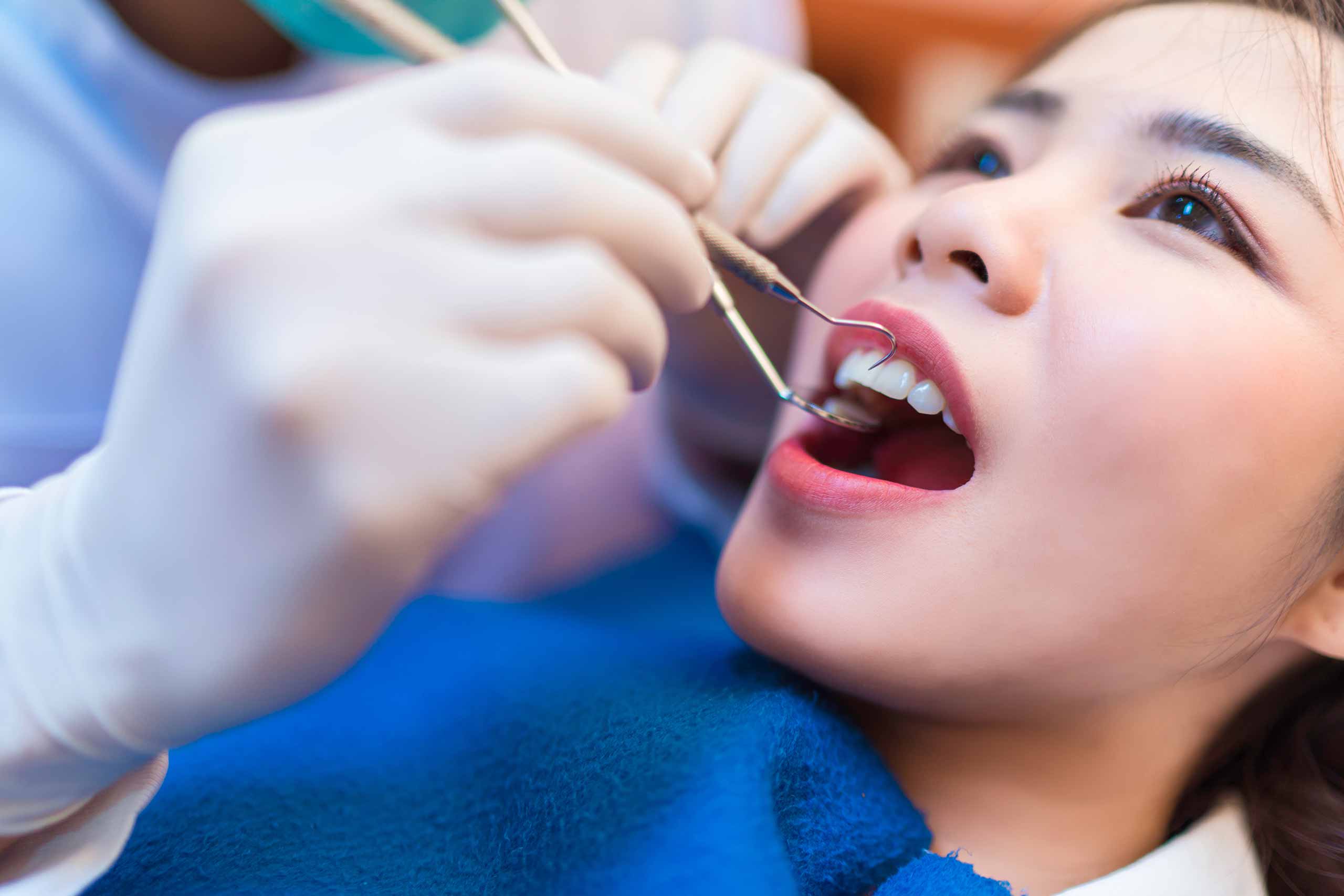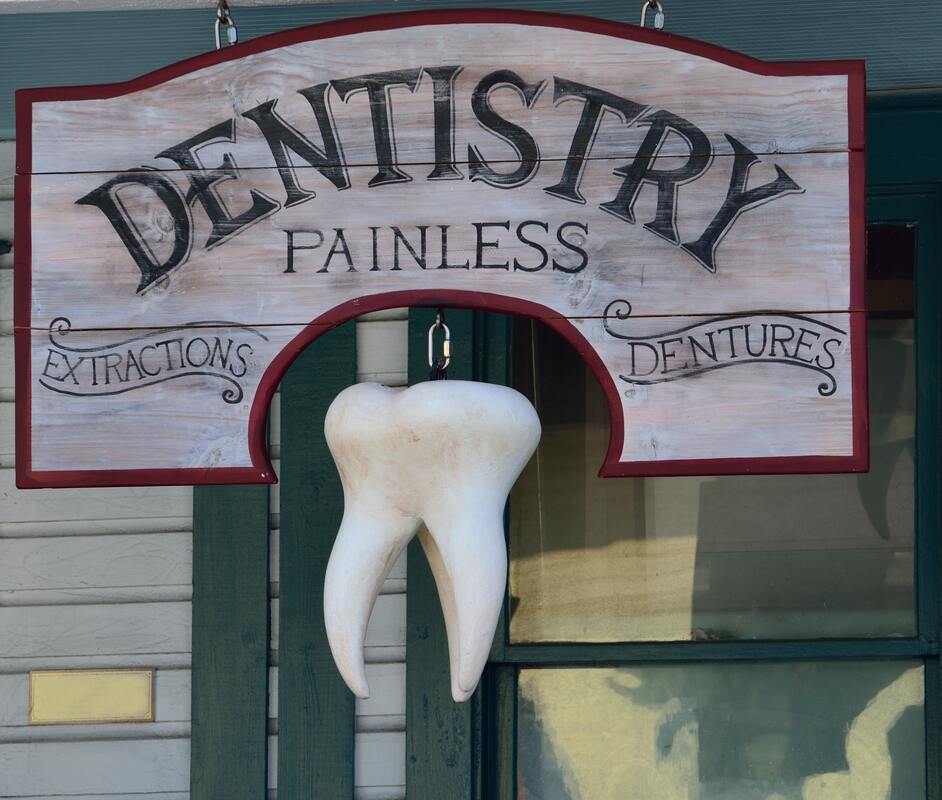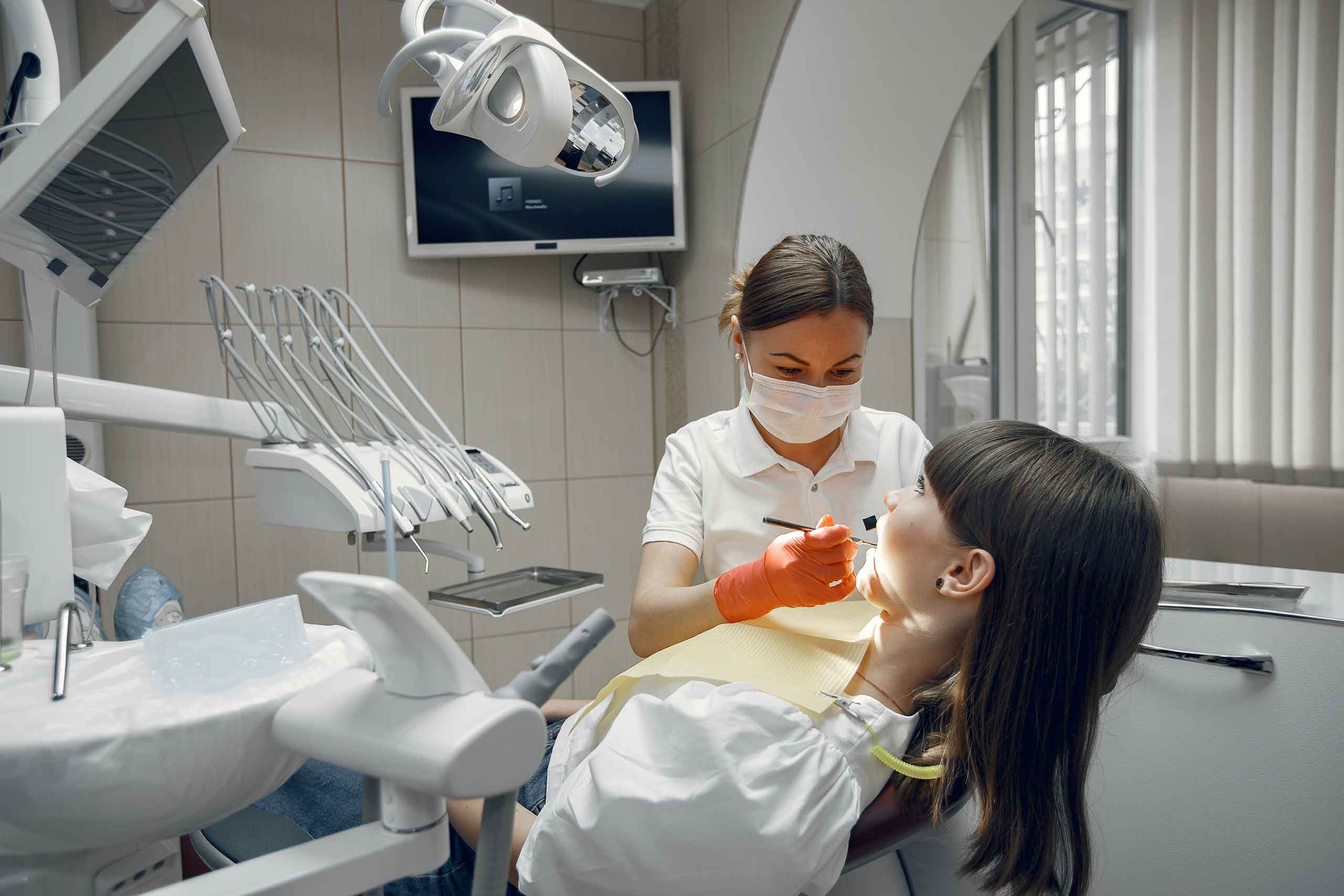Is Wisdom Teeth Removal Safe?

Before you head for your wisdom teeth removal procedure, you might be wondering: Is wisdom teeth removal safe? Wisdom teeth removal is generally a safe procedure if done under a trained and experienced dentist.
The vast majority of patients undergo the procedure without complications. Success rate is high, with a more than 95% success rate. The benefits of preventing potential future dental issues often outweigh the minimal risks associated with extraction.
This article has been written to help inform you on how to prevent wisdom teeth removal from becoming a dangerous procedure, and why it might not be necessary to remove all your wisdom teeth.
Book an appointment with Kong Dental Surgery to assess whether you need your wisdom teeth removed.
What is Wisdom Teeth Removal?
Wisdom teeth removal, or the removal of third molars, is a dental procedure done to remove one or more wisdom teeth. The procedure is usually done when a wisdom tooth does not have room to grow. This is known as an impacted wisdom tooth.
An impacted wisdom tooth can cause pain, infections or other dental problems and should be removed. The procedure is usually done by a dentist or oral surgeon.
Many patients I see assume that it is a rite of passage to have their wisdom teeth removed. Some patients come to me with a request to remove all 4 wisdom teeth at once.
You might be surprised to know that it is not necessary to remove all your wisdom teeth. You might not even have to remove your wisdom teeth at all under certain circumstances. In fact, removing your wisdom teeth when there is no need to can lead to other dental problems. In some cases, it might even be unsafe to remove your wisdom teeth.
Understanding the safety aspects of wisdom teeth removal is crucial for making informed decisions about your oral health.
Benefits of Removing Wisdom Teeth
There are a few key benefits of removing wisdom teeth:
- Less overcrowding which reduces need for orthodontics
- Better oral hygiene
- Reduce possibility of infection and pain
- Protect other teeth from damage
Benefits of Keeping Wisdom Teeth
If your wisdom teeth are not causing any pain, discomfort or in the way of other teeth, there are some benefits to keeping your wisdom teeth instead of plucking them:
- Retain the functionality of your teeth to bite and chew properly
- Retains natural structure and prevents teeth and jaw from shifting
- Enhances the lifespan of your teeth
Potential Risks and Complications of Wisdom Teeth Removal
Just like any other dental procedure, the wisdom teeth removal procedure does have risks and complications. While it is a routine dental practice, complications like infections or nerve damage do happen. This is especially so if the procedure has been done by an inexperienced dentist.
Infections
Infections can occur if bacteria enter the surgical site or if proper post-operative care isn’t followed.
How Kong Dental minimises infections: Our dental team employs strict sterilisation protocols, and post-operative care instructions are provided to minimise infection risks.
Nerve Damage
The proximity of wisdom teeth to nerves can lead to potential damage during extraction, resulting in temporary or, rarely, permanent numbness.
How Kong Dental prevents nerve damage: Our experienced dental professionals use advanced imaging techniques to assess nerve proximity and employ precise extraction methods to minimise the risk of nerve damage.
Dry Socket
Dry socket occurs when the blood clot that forms after extraction is dislodged or dissolves prematurely, exposing the bone.
How you can prevent dry socket: Following post-operative care instructions, including avoiding certain activities and maintaining oral hygiene, significantly reduces the risk of dry socket.
Excessive Bleeding
Some patients may experience prolonged bleeding after extraction, particularly if they have bleeding disorders or take blood thinning medications.
How Kong Dental minimises risks of excessive bleeding: Preoperative assessments include evaluating your medical history to identify any factors that could increase bleeding risks. Our team takes necessary precautions to manage bleeding during and after the procedure.
Sinus Issues (Upper Wisdom Teeth)
Upper wisdom teeth removal may pose a risk of sinus issues if the sinuses are close to the extraction site.
How Kong Dental prevents sinus-related issues: Our dental professionals thoroughly evaluate the anatomy of the upper jaw using imaging techniques to minimise the risk of sinus complications.
Common Concerns and Misconceptions about Wisdom Teeth Removal
If you are planning to head for wisdom teeth removal, you might be worried about the possibility of pain from the procedure. You might have also heard horror stories from other patients, friends or family about wisdom teeth removals gone wrong.
It might be a relief for you to know that wisdom teeth removal is a generally safe procedure with very little discomfort. Thanks to modern pain medications and pain management techniques, there is usually no pain during the wisdom teeth removal procedure.
Here are some common misconceptions that patients have about the wisdom teeth removal procedure:
Myth #1: All Wisdom Teeth Must Be Removed
Reality: It’s a widespread belief that all four wisdom teeth must be removed. However, the necessity for removal depends on various factors, including their positioning, impact on neighbouring teeth, and potential for future complications. In some cases, individuals may only need one or two wisdom teeth removed, while others may require extraction of all four.
Myth #2: Wisdom Teeth Removal Is Painful
Reality: Many patients fear intense pain associated with wisdom teeth removal. Modern anaesthesia and pain management techniques significantly minimise discomfort during and after the procedure. Patients often find that the anticipation of pain surpasses the actual experience.
Myth #3: Wisdom Teeth Removal Always Results in Swelling and Bruising
Reality: While some degree of swelling is common after any dental surgery, it’s not a universal experience. Factors such as individual healing abilities, adherence to post-operative care instructions, and the complexity of the extraction influence the extent of swelling. Bruising is relatively uncommon.
Myth #4: Wisdom Teeth Removal Interferes with Other Health Conditions
Reality: There’s a misconception that wisdom teeth removal can negatively impact overall health or exacerbate existing conditions. In truth, the procedure is localised to the oral cavity, and with proper medical history assessments, potential risks are mitigated.
Myth #5: Remove Wisdom Teeth Only When They Cause Pain
Reality: While pain may indicate issues with wisdom teeth, waiting for discomfort to arise can lead to complications. Early removal, guided by professional assessments and imaging, can prevent potential problems, such as impaction, infection, or damage to neighbouring teeth.
Myth #6: Wisdom Teeth Removal Is a One-Size-Fits-All Procedure
Reality: Every patient is unique, and their wisdom teeth removal plan should reflect this individuality. Experienced dental professionals tailor treatment plans based on factors like the number of wisdom teeth, their position, and potential complications.
Myth #7: Wisdom Teeth Removal Is an Urgent Procedure for Everyone
Reality: Urgency varies from person to person. Not everyone needs immediate wisdom teeth removal. Some individuals may never experience issues, while others may benefit from timely extraction to prevent potential complications.
How To Prevent Wisdom Teeth Removal Risks?
Wisdom teeth removal risks can often be prevented when the dental team takes meticulous steps to ensure your safety. This can range from proper assessment with imaging tools, to proper anaesthesia administration to careful treatment planning. Meticulous care often comes with experience.
Following the procedure, it is necessary for you to follow post-operative care instructions for a swift recovery.
Why Do I Need To Head To An Experienced Dentist for Wisdom Teeth Removal?
Before you head off to just any dental clinic for your wisdom teeth removal procedure, it might be helpful to do some research on dentists.
Surgical Complications
An inexperienced dentist may struggle with the surgical aspects of wisdom tooth removal. Complications such as improper incisions, inadequate bone removal, or difficulty accessing deeply impacted teeth can arise, increasing the risk of damage to surrounding tissues.
Nerve Damage
The proximity of wisdom teeth to nerves requires a gentle touch. Inexperienced dentists may inadvertently damage nerves during extraction, leading to temporary or, in severe cases, permanent numbness in the lips, tongue, or surrounding areas.
Incomplete Extraction
A lack of experience may result in incomplete removal of the tooth or leaving behind fragments. This can lead to persistent pain, infection, or, in rare cases, the need for additional surgery to address the remaining fragments.
Excessive Bleeding
Inadequate control of bleeding is a risk associated with inexperienced practitioners. Proper techniques and knowledge of patients’ medical histories are essential to manage bleeding effectively during and after the procedure.
Infection Risk
Infections can arise if sterile techniques are not followed diligently. Inexperienced dentists may be less adept at maintaining a sterile surgical field, increasing the risk of postoperative infections.
Anaesthesia Complications
Administering anaesthesia requires precise dosage and careful monitoring. Inexperienced dentists may struggle with these aspects, leading to complications such as inadequate pain control, prolonged sedation, or, in rare cases, adverse reactions.
Failure to Recognise Complications
Recognising and managing unexpected complications during the procedure is a skill developed through experience. An inexperienced dentist may struggle to identify and promptly address issues like excessive bleeding, adverse reactions, or unexpected anatomical challenges.
Inadequate Post-Operative Care
Inadequate guidance on post-operative care is a potential risk when wisdom tooth removal is performed by an inexperienced dentist. Proper instructions are essential for minimising complications, and inexperienced practitioners may overlook critical aspects.
Choosing an experienced dentist or dental specialist significantly mitigates these risks. They possess the knowledge, skills, and refined techniques necessary to navigate the complexities of wisdom tooth removal. Prioritising experience ensures a higher level of patient safety and reduces the likelihood of complications during and after the procedure.
Book an appointment with an experienced dentist for your wisdom teeth removal.
Benefits of Experienced Dentist for Wisdom Teeth Removal
Precise Evaluation: Skilled dental professionals have a comprehensive understanding of oral anatomy. Before the removal, they conduct precise evaluations using advanced imaging techniques to assess the position of your wisdom teeth in relation to nerves, sinuses, and adjacent structures.
This detailed evaluation helps in planning the extraction with precision, minimising the risk of complications such as nerve damage, sinus issues, or excessive bleeding.
Expert Technique: Dental specialists have honed their skills through years of practice and training. Their expertise allows them to employ refined techniques during the removal process.
Expert technique ensures a smoother and less traumatic extraction, reducing the likelihood of complications like dry socket and excessive bleeding. Nerve-sparing methods are employed to minimise the risk of nerve damage.
Customised Treatment Plans: Experienced dentists create individualised treatment plans based on the unique anatomy and needs of each patient.
Customised plans account for variations in tooth positioning, patient medical history, and potential complications, ensuring a tailored approach that minimises risks.
Preventive Measures: Seasoned dental professionals take proactive steps to prevent potential issues during and after the extraction.
This includes implementing strict infection control measures, providing thorough post-operative care instructions, and advising on lifestyle modifications to reduce the risk of complications like infection and dry socket.
Effective Communication: Dental specialists prioritise effective communication with their patients. They discuss potential risks, answer questions, and ensure patients are well-informed.
Informed patients are better equipped to follow post-operative care instructions, contributing to a smoother recovery and minimising the risk of complications.
Choosing an experienced dentist or dental specialist for your wisdom teeth removal is an investment in your oral health. Their expertise, precision, and commitment to patient safety significantly contribute to a positive and risk-reduced experience.
Is It Still Recommended That I Undergo Wisdom Teeth Removal?
The decision to undergo wisdom teeth removal should be dependent on factors such as:
- The position of your wisdom teeth
- Whether your wisdom teeth is likely to cause complications in the future
- Whether you feel any pain and discomfort.
When Is It Necessary To Remove My Wisdom Teeth?
It might be necessary to remove your wisdom teeth if you encounter any of the following:
- Impacted wisdom teeth
- Overcrowding
- Infection from gum disease
- Tooth decay
- Pain or discomfort
- Dental cysts or tumours
To get a better overview on whether it is necessary to remove your wisdom teeth, you should head to an experienced dentist who can help assess the dental situation.
When Should I Not Undergo Wisdom Teeth Removal?
You should probably not undergo a wisdom teeth removal procedure if you fall under one or more of these situations:
- Straight eruption: A straight eruption means that your teeth have erupted fully and are properly aligned. Removal may not be necessary when your wisdom teeth are not causing problems with surrounding teeth.
- Adequate space: If there is enough space in your jaw for your wisdom teeth to emerge, and does not cause misalignment or overcrowding, it might not be necessary to remove your wisdom teeth.
- Healthy and functional teeth: If your wisdom teeth are healthy, functional and is not causing you any pain or discomfort, you might not need wisdom teeth removal.
- Age and health concerns: If you are currently experiencing health issues or underlying health conditions, it might not be a good idea to remove your wisdom teeth. Older individuals are also advised against unnecessary surgical procedures.
Is Wisdom Teeth Removal Safe?
Yes it definitely is.
Wisdom Teeth Removal is A Safe Procedure When Done With Experienced Dentists
If you are still considering removing your wisdom teeth, you can be sure that wisdom teeth removal is a safe procedure. Under the right dental professionals and care, there is very little risk of complications or cause for concern.
As you consider wisdom teeth removal, I encourage you to schedule a consultation with our experienced dental team. Your safety and comfort are our top priorities. Taking proactive steps will contribute to a successful and safe wisdom teeth removal experience.
Your oral health journey is a partnership between you and our dedicated dental professionals. We look forward to ensuring your comfort, safety, and a healthy, happy smile.
Make An Enquiry
Let us know your concerns and our clinic staff will get back to you in 1-2 hours.
Prefer to talk to our clinic staff directly? Call our clinic to chat with our friendly nurses at +65 6767 9502
General Information
-
Yew Tee Point
21 Choa Chu Kang North 6 #01-27 Singapore 689578
Tel: +65 6767 9502
(Please Enter The Clinic From Outside The Mall) -
Consulting Hours
Mon to Fri: 9AM to 9PM
Sat: 9AM to 6PM
Sun and PH: Closed
Related Articles
-

How Often Do You Need To See A Dentist?
We all know that keeping our teeth healthy and clean cannot be overlooked. Moreover, our oral health is closely related to our overall health.1 After...
Read More -

Pain Free Dentistry: Is There A Pain Free Dental Clinic in Singapore?
For many individuals, dental procedures are often associated with pain and discomfort. You might be one of them too. Fear of pain often deters patients...
Read More -

Top 5 Reasons To Visit A Dentist
Keeping up with your dental hygiene is important for your general well-being. There are many reasons why you need to visit the dentist more often....
Read More


